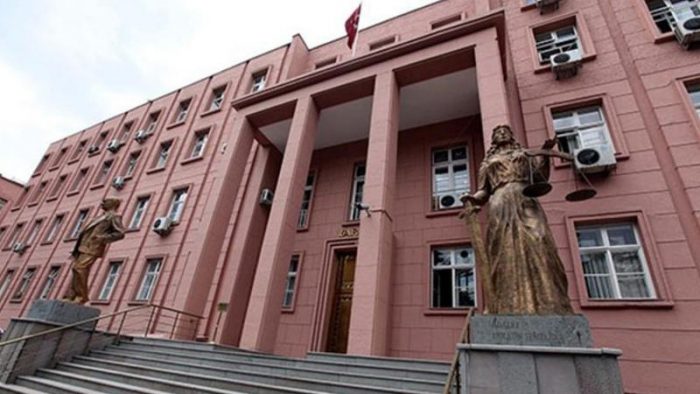A judicial crisis in Turkey involving two high courts due to conflicting rulings on a jailed lawmaker continued as the pro-government Yeni Şafak daily targeted the top judges who ruled to release the imprisoned MP, while Turkey’s Supreme Court of Appeals issued a statement on Friday evening accusing the Constitutional Court (AYM) of dragging the judiciary into chaos with its rulings on individual applications.
The crisis was ignited by the case of Can Atalay, an opposition lawmaker from the Workers Party of Turkey (TİP) who filed a petition with the AYM claiming rights violations due to his continued incarceration despite acquiring parliamentary immunity in the May elections.
The AYM ruled in favor of Atalay, but the Supreme Court of Appeals defied this decision, sparking widespread criticism and accusations of a judicial coup.
Turkish President Recep Tayyip Erdoğan earlier Friday voiced explicit support for the Supreme Court of Appeals’ defiance of the AYM, signaling a willingness to use the judicial crisis to press ahead with plans to limit the power of the top court. Erdoğan’s comments draw harsh criticism from the opposition, which accused him of staging a coup and dismantling constitutional order.
Yeni Şafak on Friday published the names and pictures of the AYM members who voted for Atalay’s release and accused them of paving the way for the release of terrorist offenders such as leaders of the outlawed Kurdistan Workers’ Party (PKK) through the back door of being elected as a lawmaker.
Meanwhile on Friday evening, in a significant development amid the ongoing crisis, the Supreme Court of Appeals released a comprehensive statement addressing the issue.
The court said its history dates back 155 years and emphasized its role as “the highest appellate court in the judicial system,” responsible for ensuring the uniform application of the law across Turkey.
The statement claimed that the Turkish Constitution does not establish a hierarchy among the high courts, which include the AYM, the Supreme Court of Appeals and the Council of State, and that all final court decisions are binding for everyone.
A significant portion of the statement was dedicated to addressing the role of individual applications to the AYM. The appeals court clarified that these applications are a secondary means of rights protection when regular legal channels are inadequate. It asserted that the AYM is not a court that overturns decisions of administrative or criminal courts, nor does it function as an appellate or review body for cases.
The appeals court expressed concerns over some decisions of the AYM in individual application reviews, accusing it of exceeding constitutional and legal boundaries and potentially leading to chaos in the legal system.
The statement criticized the portrayal of the AYM as a “super appellate court” to the public, a narrative it attributed to communication strategies focused on certain high-profile cases.
Concluding the statement, the court expressed its readiness to support necessary constitutional and legal work to address the issues arising from the current crisis, in a move that could be seen as an endorsement of Erdoğan’s push for a new constitution.


